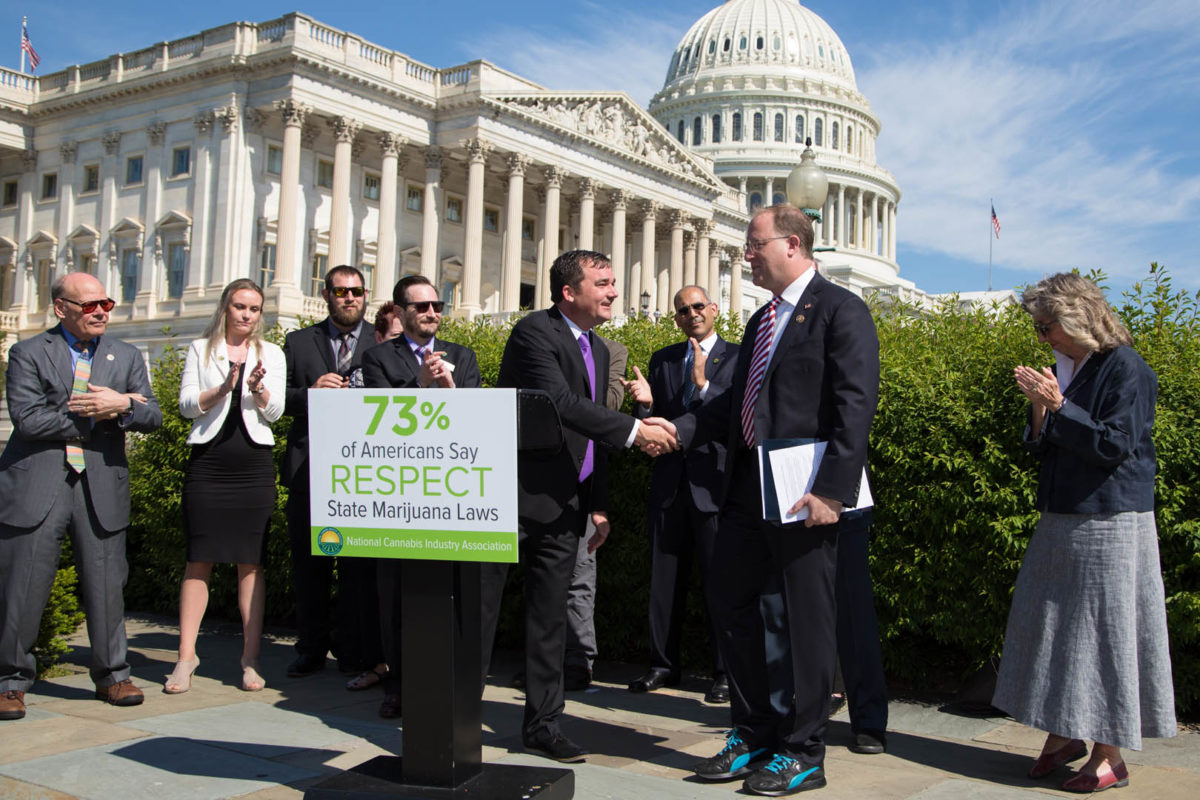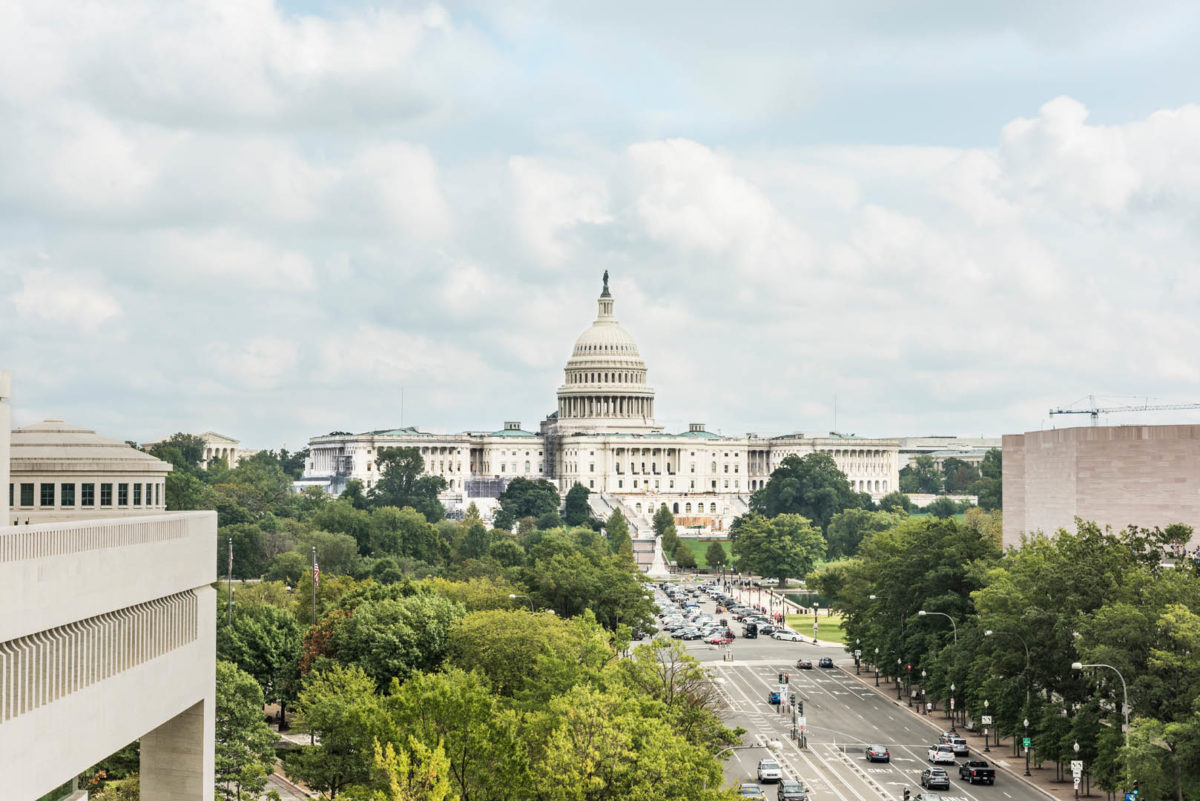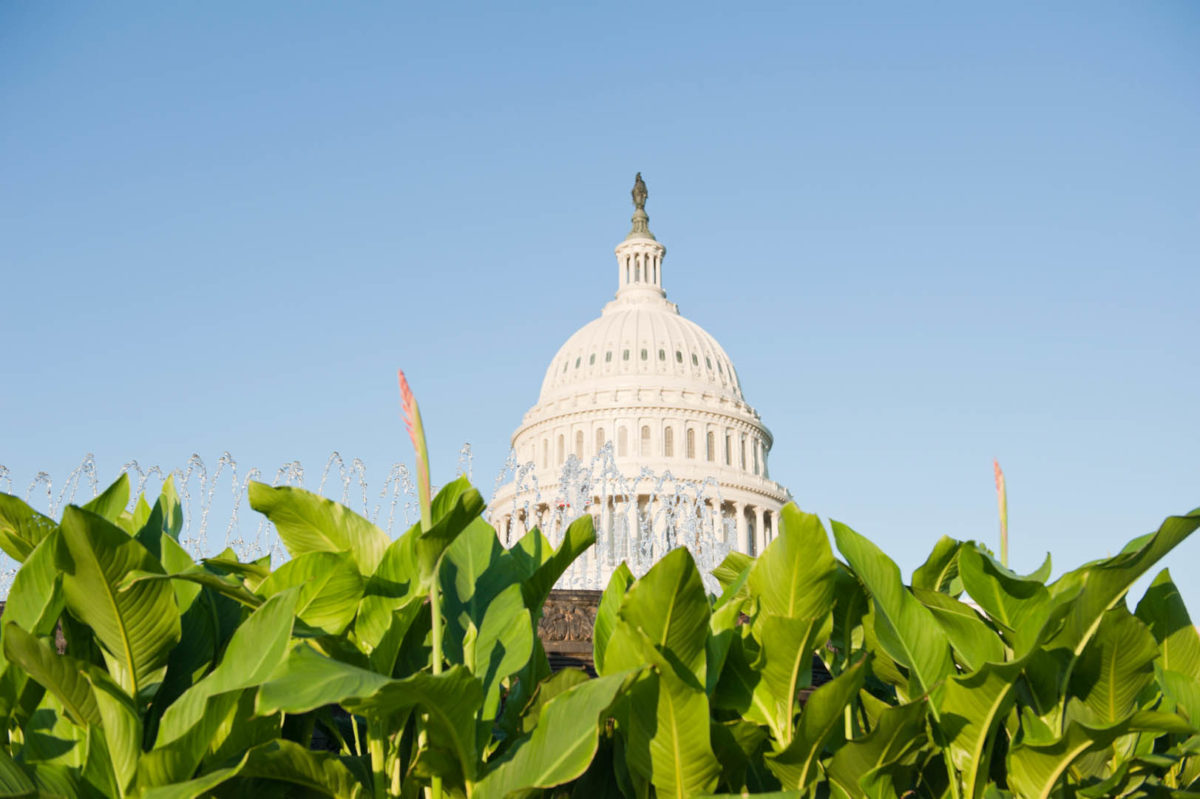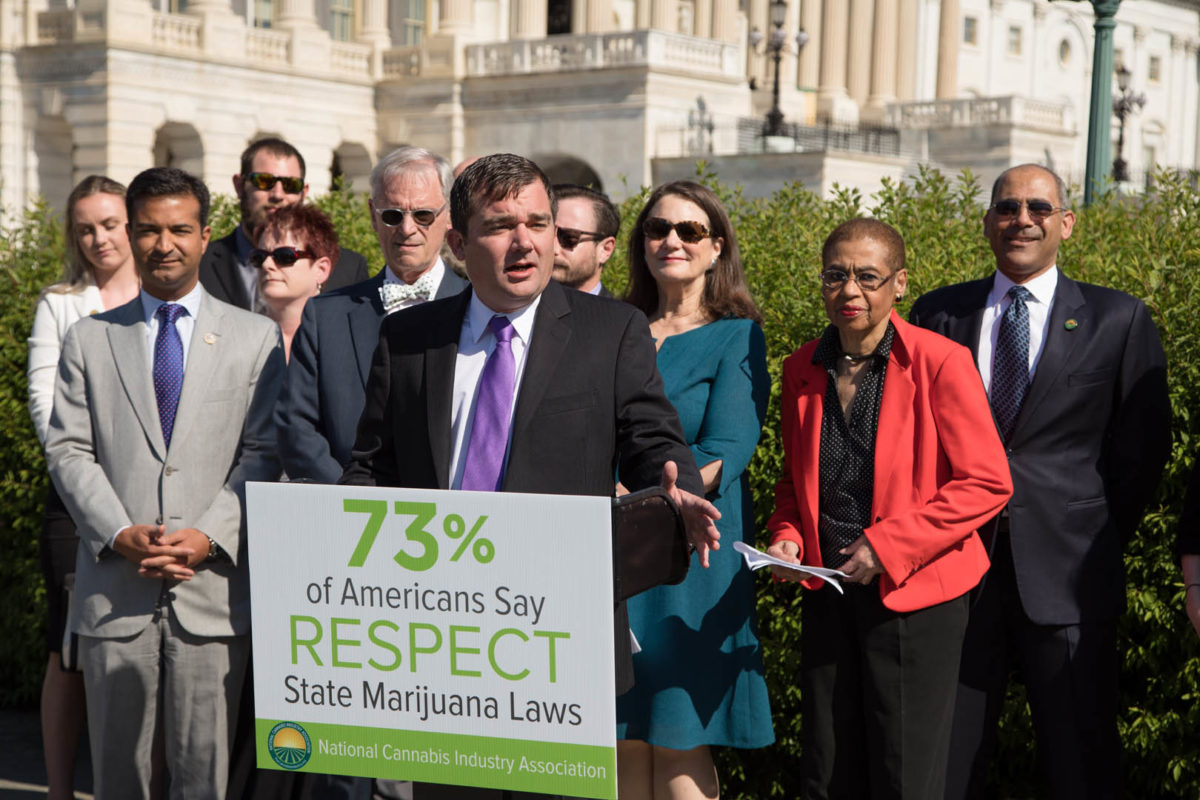NCIA deputy director Taylor West on MSNBC Discussing the Trump Administration

NCIA deputy director Taylor West, discussing the Trump Administration’s approach to marijuana policy on MSNBC on Saturday, February 25, 2017.

NCIA deputy director Taylor West, discussing the Trump Administration’s approach to marijuana policy on MSNBC on Saturday, February 25, 2017.

“It was especially disappointing to hear Press Secretary Spicer refer to the opioid crisis in relation to marijuana,” National Cannabis Industry Association Executive Director Aaron Smith said in a statement. “Science has discredited the idea that marijuana serves as any kind of gateway drug, and the addiction and death rates associated with opioids simply do not occur in any way with cannabis.”
During the campaign, Trump said he would not interfere with state laws that have allowed recreational marijuana, Smith added.
Read more: http://www.nj.com/politics/index.ssf/2017/02/1st_white_house_comments_on_recreational_pot_sugge.html

Enforcement of the nation’s laws surrounding marijuana despite states legalizing its use in one form or another would be a grave “mistake,” one of the leading pot advocacy groups said in a statement directed at the federal government Thursday. The statement came hours after White House Press Secretary Sean Spicer announced during a media briefing that the administration of President Donald Trump would bring “greater enforcement” of federal laws for recreational marijuana.
“It would be a mistake for the Department of Justice to overthrow the will of the voters and state governments who have created carefully regulated adult-use marijuana programs,” National Cannabis Industry Association Executive Director Aaron Smith said in the statement. “It would represent a rejection of the values of economic growth, limited government, and respect for federalism that Republicans claim to embrace.”

And because of Trump and Sessions’ strong belief in states’ rights, making it more unlikely they would interfere with states whose voters have approved legalization laws, National Cannabis Industry Association Deputy Director Taylor West said, “We’re cautiously optimistic.”
Even so, uncertainty hangs over the industry, thanks to the legal no-man’s land between federal and state law that is chilling for cannabis businesses, confusing for consumers and a potential risk to the $1 billion in weed-related tax revenue expected for California in 2018.

Unsurprisingly, marijuana advocacy groups are pleased about the Cannabis Caucus. In a joint statement, the Marijuana Policy Project, the Drug Policy Alliance, the National Cannabis Industry Association, the National Organization for the Reform of Marijuana Laws (NORML) and others commended the lawmakers for leading the charge on cannabis policy, and said they look forward to working with the caucus members.
“The establishment of a Cannabis Caucus will allow members from both parties, who represent diverse constituencies from around the country, to join together for the purpose of advancing sensible cannabis policy reform,” the statement reads.
“The formation of this caucus is a testament to how far our country has come on the issue of cannabis policy,” the groups add. “There is a growing consensus that cannabis prohibition has failed, and it is time for a more sensible approach.”
This site uses cookies. By using this site or closing this notice, you agree to the use of cookies and our privacy policy.
Follow NCIA
Newsletter
Facebook
Twitter
LinkedIn
Instagram
News & Resource Topics
–
This Just In
How THCa Vapes Are Changing Consumer
Announcing NCIA’s 2026-2028 Board of Directors